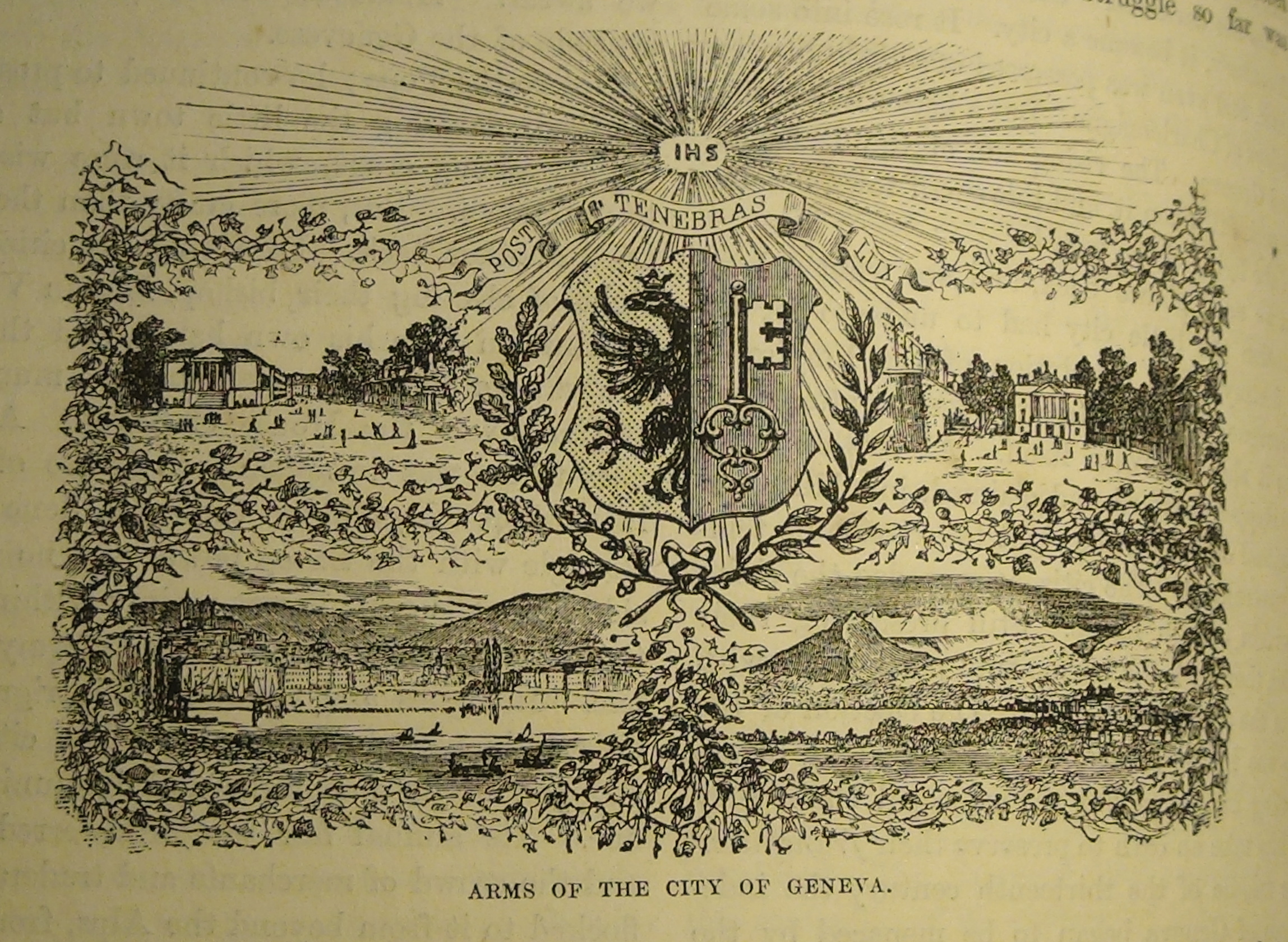Archive for category Limited Atonement
Christ died for all mankind, even Judas!
Posted by simon peter sutherland in "Calvinism", Limited Atonement, Theology on March 28, 2024

Over the last 20 years I have been in a continuous and sporadic confrontation with the 5 Point Calvinist view of Limited Atonement. I have read books, articles, listened to sermons, debates and had many conversations with a number of believers who hold to the the view that Christ did not die for the whole world but only for His elect.
I reject that viewpoint.
In the Bible there many verses that state that Jesus Christ died for all, yet according to many 5 Point Calvinists, this word all, does not always mean all. Fair point, there are times when all does not mean all. Does that observation however mean that Jesus Christ did not die for the whole of mankind? No, it does not.
At this stage, there is little point my listing the considerable amount of New Testament verses which are believed to affirm that Jesus died for all mankind, since 5 Point Calvinists differ to the plain interpretation of these passages. So I will focus upon one passage and work my way from there.
In Matthew 26: 17-30 Jesus celebrates the Passover with His disciples and institutes the Lord’s supper. Those who were present were the 12 disciples. This includes, Peter, James, John, Andrew, Philip, Judas Iscariot, Judas Thaddeus, Matthew, Thomas, James (son of Alpheus), Bartholomew, and Simon the zealot.
The feast took place on the evening of the first day of the feast of Unleavened Bread (Matthew 26: 17). Verse 20 says “When evening had come, He sat down with the twelve.” Then Jesus refers to the one who will betray Him (verse 21) and the disciples are exceedingly sorrowful and they ask the question “Lord, is it I?” (verse 22) Then Jesus responds by saying “He who dipped his hand with Me in the dish will betray Me.” (verse 23) He then goes on to say “woe to that man by whom the Son of Man is betrayed! It would have been good for that man if he had not been born.” (verse 24)
Then Jesus takes the bread, blesses and breaks it and gives it to His disciples saying “Take, eat; this is My body.” (verse 26) We assume all 12 disciples ate the bread at this point. Then in verses 27-28 Jesus takes the cup and says “Drink from it, all of you. For this is My blood of the new covenant, which is shed for many for the remission of sins.“
This word translated many is is described by Greek scholars as meaning what it says on the tin, a large number. There is basically no limitation to that word. The word “shed” describes a pouring out in a sacrificial sense and is steeped in Old Testament knowledge. He means that without this shedding of blood there is no remission of sin or sins.
When you consider the unmoveable fact that Judas was present when Jesus said that and when He offered all 12 disciples to eat and drink this Passover, we cannot but assume that He said this to all 12 disciples including Judas.
Thus, if Limited Atonement were true as is stated in the 5 Points of Calvinism, then Christ only died for His elect who would believe in Him and be saved. This would exclude Judas. Yet here in Matthew 26: 17-30 we see the exact opposite. We see Jesus offering Himself to all 12 disciples, including Judas, yet Judas betrayed Him.
It is my belief that had Judas repented, He may have been saved? But he did not. This however does not mean that Christ did not die for him or for the rest of mankind, it merely means that all do not receive Him.
Dwell upon these thoughts this Easter as we remember what Christ has done for us and all who believe in Him and keep His commandments.
Does the 1549 Book of Common Prayer teach ‘Limited Atonement’?
Posted by simon peter sutherland in "Calvinism", Church of England, Limited Atonement on October 17, 2020
 The original 1549 Book of Common Prayer by Thomas Cranmer is a wonderful and historically significant Christian book. In Rylands Library I have had the honour of reviewing and researching ancient original copies of this work, in the original prints and wording.
The original 1549 Book of Common Prayer by Thomas Cranmer is a wonderful and historically significant Christian book. In Rylands Library I have had the honour of reviewing and researching ancient original copies of this work, in the original prints and wording.
The original Book of Common Prayer supports the claim to universal redemption as a consistent Christian truth. The text of reads as follows;
Answere:
“First, I Leanne to believe in God the father, who hathe made me and the worlde.
Secondly, in God the sonne, who hath redeemed me and all mankind.
Thirdly, I God the Holy Ghost, who sanctifieth me, and all the electe people of God” (The Book of Common Prayer. 1549. A Cathechisme.)
The proposed questions which I set forth are these;
Q. does this article consider the possibility that the world does not mean ‘the entire world’? That is the entire human race?
A. No it does not. The text clearly states in clear basic terms for simple Christians in England during the 16th century, not to view the world as meaning only the elect or the people from within the world, but all the world. If God made all the world and this means ‘all’, then it follows that when the passage speaks of redeeming “all mankind”, that it means ‘all’ and not only some.
Q. Does this imply universalism? Or does this imply universal offering of redemption?
A. I think the word “redemption” states that the passage refers to universal redemption, that is in the sense of Christ regaining possession of mankind, in the context of a payment. It does not imply universalism. I think there is not even a hint of limited atonement within this article.
Q. But does not the text say “sanctifieth me, and all the elect”? Yes, it does. That those whom have the Holy Spirit are elect and are sanctified by Him and when the Holy Spirit is given, His work is effectual for those who believe. But that belief must be present, active and continuous. A person need not be understood as ‘elect’ because he or she has been determined by God to be elect in order to believe, but that he or she is elect because they believe.
Once again we see further proofs in favor of my claim that the Calvinistic doctrine of ‘Limited Atonement’ need not be understood as pure reformed teaching.
We must consider that if Christ has died for all, He must have made a way for all to receive Him, as communicated throughout the New Testament. But Calvinism cruelly offers salvation to people when in reality it knows all too well that unless a person is determined to believe, he or she cannot receive the grace of God unless that soul has been predestined and elected to salvation by the deterministic power of ‘God’. It offers a man bread only to give him a stone.
It is a very cruel doctrine that is somewhat deceptively diluted by many modern Calvinist preachers and presented as reformed. Yet the 39 Articles of Religion (1562) do not teach it. On the contrary, Article XXX1 (31) states the following;
“The Offering of Christ once made it that perfect redemption, propitiation, and satisfaction, for all the sins of the whole world, both original and actual; and there is none other satisfaction for sin, but that alone.”
Why I once believed in ‘Once Saved Always Saved’
Posted by simon peter sutherland in Limited Atonement, Once saved always saved, Theology on March 16, 2019
 Many years ago I read ‘The Sovereignty of God‘ by A. W Pink. This book is a well written work presenting the doctrine of the Sovereignty of God from the the Calvinistic perspective. It is well worth the read.
Many years ago I read ‘The Sovereignty of God‘ by A. W Pink. This book is a well written work presenting the doctrine of the Sovereignty of God from the the Calvinistic perspective. It is well worth the read.
In this book the author affirmed the doctrine of ‘Once Saved Always Saved‘. Because of the sheer weight of Scriptures Pink presented, I believed the doctrine as very Scriptural.
A. W. Pink was from Nottingham and in my opinion, Pink was the most consistent Calvinist I have ever read. He was a brilliant man and an excellent Christian Theologian. He proclaimed the doctrines of Calvinism to the fullest with no weakness on his part. Obviously it is not difficult to realise that a man of such Scriptural knowledge would have his collisions with the Church of his day. His biography shows us examples of that. But most of it may relate to his Calvinism.
A. W. Pink should be admired, even by his Theological opponents, because he did not shy away from the proper logical conclusions to the clear teachings of Calvinism. These observations (in my opinion), separate him from the more common, inconsistent and unconvincing Calvinist revisionist preachers and writers of our day.
When I read Pink, it would not be long before I became persuaded by the doctrine of ‘Once Saved Always Saved’. Over time however, and through the clear lens of openly reading Scripture, the impact of Calvinism lost its flavour with me. I began to see too many Scriptures contradicting the system and Calvinistic apologists failing to explain the contrasts with proper exegesis or convincing argumentation.
In answer to my title, the reason I once believed in ‘OSAS’ was because of the selective Scriptures which Calvinists use to affirm their doctrine. I am convinced, if people simply read the Bible and never listened to Calvinistic preachers, they would see that eternal security is conditional and apostasy is possible for true believers. Christians have the duty to abide in Christ and no one can abide in Christ if they never were truly saved to begin with.
As a person who once believed the doctrine of ‘Once Saved Always Saved’, I understand it, not merely from knowledge, but from experience too. It is a very persuasive doctrine. However, over time I could see the natural progression of doctrinal bondage developing. Fear of departing from accepted doctrines and the teachings of popular preachers became easy to break when I digested and trusted the words of Christ “the Truth will set you free“.
The truth be told, people who believe in ‘Once Saved Always Saved’ very rarely arrive at that conclusion by simply reading Scripture alone, but by listening to their favourite preachers or their pastors, or biblically external books. For many people and preachers, the doctrine of ‘OSAS’ is Scripture itself and for an individual to deny it either makes a person a half Christian or simply not born again. These opinions however are absolute none sense. No one need accept such attitudes or permit themselves to be bullied into beliefs that contradict Scripture.
Obviously I would not regard those who teach the doctrine as false teachers, but I would say that without their rhetorical skills, the doctrine has little Scripture to authenticate it. The facts remain, as I have written in a previous article, the doctrine of ‘OSAS’ is a historical anomaly and was not taught in the church until the 16th century. John Calvin was probably the first person to have properly taught the doctrine. As I have previously argued in an earlier article, the doctrine likely has Gnostic origins rather than Scriptural foundations.
Over recent years I have repeatedly re-examined the doctrine and the more I read the New Testament from this perspective, and explored the contexts and the Greek, I saw an overwhelming amount of Scriptural evidences to claim the doctrine has little weight to it at all. In fact, there are so many Scriptures that contradict the position, many Calvinistic apologists and preachers are left scraping the barrel for argument, so much so that they are in danger of getting splinters under their finger nails.
The truth be told, there are over sixty or so verses in the New Testament which speak as warnings to Christians to remain loyal and in the faith and to abide in Christ.
It seems quite clear that the Calvinist claim that any believer who departs from the faith, was never truly saved in the first place, may well have some accurate Scriptural examples, but the majority of the doctrine is a violation of the plain reading of Scripture.
A 20th century revival of 17th century Tulip Mania
Posted by simon peter sutherland in "Calvinism", Limited Atonement on May 16, 2018

Tulip © 2018 Simon Peter Sutherland
The Tulip as a flower first came to England in 1578. The very same year the complete Geneva Bible was first printed in England.
In those days there was such a thing as “Tulip Mania”. This began in 1594 in the Netherlands when the first Tulips were planted. It was a harmless move when it started but the craze for Tulips later became a status symbol and one tulip bulb could be worth as much as a house build beside one of the top canals in Amsterdam.
It was in this very same country, the Netherlands, where the Synod of Dordt was held in 1618. This synod was the first to declare the doctrinal position now known as ‘the five points of Calvinism‘.
In later centuries this doctrinal position earned the title “Tulip”. As far as I know, it is a term that is not found in writings prior to the 20th century?
Tulip stands for the following;
- T – Total Depravity
- U – Unconditional Election
- L – Limited Atonement
- I – Irresistible Grace
- P – Preservation or Perseverance of the Saints
IS TULIP FOUNDATIONAL?
Dr Charles Matthew McMahon in his book “A puritans mind” says the following; “The essential doctrines concerning salvation, which the puritans and all good Christians cling to, are summed up in the acronym T.U.L.IP”
These words are problematic, especially when a reading Christian could be told in writing that he or she may not be a good Christian after all, and perhaps even an unbelieving one, lacking in faith, as he suggests in his book, quote; “There are two views concerning the Gospel of Jesus Christ. First, there is what we call Calvinism. Then, there are varying degrees of unbelief” Dr C Matthew McMahon. A Puritans Mind.
The above words are cruel and intellectually dishonest. They appear to read like some form of guilt based emotional blackmail. It seems that for so many 5 point Calvinists or new Calvinists, that T.U.L.I.P is the actual gospel of Jesus Christ in a nutshell?
This same idea, though more genuine, is made somewhat clear by 19th century English particular Baptist preacher Charles Haddon Spurgeon who said the following; “It is a nickname to call it Calvinism; Calvinism is the gospel, and nothing else”
Spurgeon also said the following; “I have my own private opinion that there is no such thing as preaching Christ and Him crucified, unless we preach what nowadays is called Calvinism. It is a nickname to call it Calvinism; Calvinism is the gospel, and nothing else.” (C. H. Spurgeon. The early years. Autobiography 1. The early years. Page 168. Banner of Truth Trust)
Spurgeon stated that his beliefs were his “own private opinion“. I respect that. But he did not here stoop so low as to send his readers on an emotional guilt trip and accuse them of having a lack of faith and belief for differing with his beliefs.
I personally deny that ‘Tulip’ is in any way foundational to the Christian faith. It is a simple observation of mine that T.U.L.I.P cannot be a foundation to preaching Christ alone or the plain truth of the Gospel, or Christian doctrine, since T.U.L.I.P makes no direct references to the Virgin birth of Jesus, the Life and miracles of Jesus or the Death and Resurrection of Jesus. Neither is there reference to His return or His judging of the quick and the dead. In many ways, T.U.L.I.P has a man centred focus.
No Christian is guilty of unbelief for denying, questioning or refuting Tulip, and should never be emotionally bullied or abused into thinking so! In my own opinion, I think Calvinism is unnecessarily lowered when it is reduced by individuals to making claims like those I have mentioned above. I don’t want to put all Calvinists in the same category but wouldn’t it be better if people learned how to reason and openly debate more. I want to encourage ‘all believers’ to feel absolutely free to measure all teachings and doctrines with careful analysis of the entire Bible and not be afraid of the implications of the text. To learn to live alongside other believers who differ. But never fall foul of emotional mind games of those who desire you to follow their favourite interpretations of the same Bible.
An open letter to John Piper
Posted by simon peter sutherland in Limited Atonement, Reformation 2017 on October 31, 2017
 Dear Pastor John Piper,
Dear Pastor John Piper,
I am writing this letter to you because I know you are familiar with open letters.
All I ask of you is that you read it, test it, to see if it be of true. If it is true, I pray you will embrace it.
May the Lord be with us both as we remember this day.
Grace and peace
Simon Peter Sutherland
Was the Reformation exclusive to Calvinism?
Posted by simon peter sutherland in 500th Anniversaries, Limited Atonement, Reformation 2017 on October 24, 2017

John Calvin © 2017 Simon Peter Sutherland
In only a few days now the actual 500th anniversary of the Reformation will be upon us.
31 October for me is a time that can inspire things to be straightened out. A time that inspires misconceptions to be challenged and for the voices of the people to be heard.
At this time of such a momentous anniversary, there is a common misunderstanding today that I have noticed for sometime, where popular preachers from America often associate the labelling of ‘reformed Theology’ as somewhat exclusive to Calvinism.
There are a lot of brothers in America who claim ‘reformed Theology’ is little more than Calvinism in a nutshell.
Calvinism they say, is nothing more than the pure Gospel.
These claims however are highly speculative and cannot be verified beyond doubt in the face of history and Scripture.
The facts remain that reformed theology can be divided into about four branches or positions.
- Lutheran
- Calvinist
- Anglican
- Hussite
The facts remain that when Luther nailed his 95 theses to the Castle Church door in Wittenberg in 1517, John Calvin was only eight years old.
Calvin was born 10 July 1509 in Noyon, France, which is nearly 600 miles from Wittenberg. When Luther stood at the Diet of Worms in 1521 and the outbreak of the Reformation spread, Calvin was an 11 year old boy who went on to study Philosophy in Paris. He went on to study and pursue a career in law and would not experience a conversion to Christ until 1533 when he was about 24 years old.
By that time Luther had already been excommunicated, translated the New Testament into German and his complete German translation of the Bible was close to being published. The following year Tyndale’s New Testament was in its final revision and the majority of key reformation books had been published and distributed.
By 1536 Calvin was working hard to reform the Church in Geneva and his publication of ‘the Institutes of the Christian Religion’ was in its 1st edition. And through his preaching and influence in Geneva, Calvin’s branch of the reformation spread throughout Geneva and the reformation reached its peak by 1545 and by influence continued on till about 1620. By 1545, many publications had been published and the majority position of the Reformation was Lutheran. Calvinism mainly taking root in France, Netherlands, and Scotland and remaining until after the counter reformation of 1648.
From the mid 16th century – the mid 17th century, Calvinism had taken root in England, Scotland, Greece, and Wales during the Puritan era, while Lutheranism held a majority throughout Europe, even making its way back to Rome itself. Thus, the simple facts remain that although Calvin’s influence had branches within the Reformation, it was probably not referred to as Calvinism until the 18th or 19th centuries, the majority of Calvinistic thought process at that time being the development and spread of the doctrines proclaimed in 1618 at the Synod of Dort and the Puritans who left England during the 17th century for America.

Geneva arms © 2017 Simon Peter Sutherland
John Calvin’s steadfast work and devotion to the faith is to be admired and admonished, and I value his contribution to the reformation. I regard Calvin’s commentaries on Scripture among the best available. But, I am less favourable concerning the common claims that reformed theology is nothing more than Calvinism. On the contrary, the claim is little more than a fictitious propagation of this centuries favourite American Calvinist preachers, who because of their position on believers baptism, would probably have been either imprisoned or drowned by the very same people they claim to revere.
Surely it is time now for this fallacious claim to be amended!
An appeal to 5 point Calvinists in America
Posted by simon peter sutherland in Limited Atonement on April 7, 2014

The Gospel of John in Greek
© 2014 Simon Peter Sutherland
“For the time is come, that judgement must begin at the house of God; and if it first start with us, what shall the end be of them that obey not the gospel of God?. ” 1 Peter 4: 17
Dear brothers and sisters in Christ. The time has come for you to re-examine the Scriptures, and cease to deny those which do not reaffirm your message.
Too long have your teachers embraced a loyalty within their hearts to the Separatist theories and histories which landed on your shores so long ago.
Dear brothers and sisters in Christ, I know you love the Scriptures and are loyal to them, but the reason why some of you wrestle with the Scriptures, is because they speak contrary to some of the doctrines of which you hold dear. It is time for change.
Too long have your teachers upheld Scripture in one place, while denying them in another. I know that they are loyal to the Truth and I know they try and be loyal to Scripture, but they have another love in their hearts. The loyalty to their much loved friends and historical people, has taken the pure milk of the word out of their hearts.
Friends; you need not be loyal to the doctrines upheld by your close friends, pastors, beloved teachers, historical people and their books. Our loyalty is to God alone and the Scriptures which He has set in their place. And if a doctrine has no place in Scripture, it should have no place within our hearts.
On the basis of Scripture and in the quest for Truth, I appeal to you to re-think your position with Scripture and plain reason.
If you open your hearts to what Scripture says, the Scripture will come into you and breathe. But if you shut up your hearts and close your minds, you alone will close them up.
Remember that you who uphold and teach doctrines, will be judged more highly than those who do not . This is why James wrote, “My brethren be not many masters, knowing that we shall receive the greater condemnation” (James 3: 1.)
With that Truth in mind, I urge you for the good of yourselves and all people; be not be like those of old who affirmed Salvation for themselves, while denying it for others. All the while, looking at the decline of your own while denying their Salvation at the same time. For, if this be an untruth, you will receive judgement for teaching it.
I appeal to you who know the Scriptures, to spend some time in the close examination of them once again. For it is the Church which is to be judged by the Scriptures, not the Scriptures by the Church. It is the Body of Christ to whom the message of Salvation has been entrusted. And she cannot be alarmed by her country’s denial of Scripture, while she herself denies them too.
I appeal to you this day, to re-examine the Scriptures and seek the Lord who gave them. To seek the Word of the Prophets and Apostles who wrote them down and sent the Words to you by the Power of the Holy Spirit sent from Heaven.
The Scripture says “Elect according to the foreknowledge of God the Father” 1 Peter 1: 2. Through which is revealed the original purpose of God, to indiscriminately bring Salvation both to Jews and Gentiles, who are elect according to the foreknowledge of God, in which, if it follows that if no man is excluded from calling upon God, Salvation must be ready available for him.
I urge and plead with you to re-examine your hearts and minds and be not like those of old, who were chosen, but in the time of Our Lord did deny salvation for everyone, but themselves alone. They too used Scripture to affirm it.
Brothers and sisters, I plead with you, on behalf of Truth and the souls of those who are perishing and the pure testimony of divine Scripture, ‘gird up the loins of your minds, be sober and repent’. And if you have tasted that the Lord be gracious to you, remember His grace towards others, who were like yourselves, not the people of God, even so should you be merciful, as you yourselves have obtained mercy.
If the doctrine of ‘Limited Atonement’ be true, then it is not a ‘doctrine of Grace’. It is a doctrine of damnation for all those who either cannot, or will not believe in it.
Dearly beloved, judgement is coming, but it will not come until the house of God is set in order first. Time is short, I beseech you, as strangers yet as brothers and sisters, to submit yourselves to every Word of God. And pray, pray, pray.’